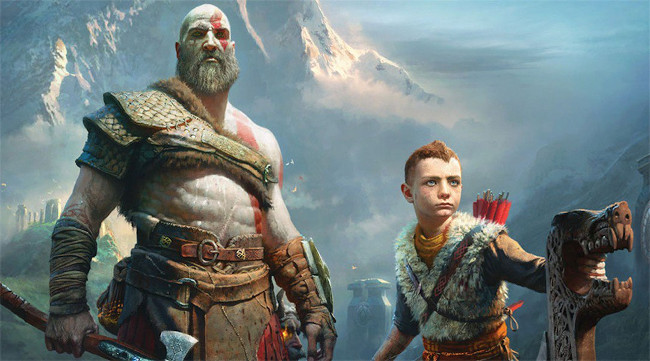More so than any other era in history, the Viking Age, which dawned and ended between 793 and 1066 AD, has left an indelible mark on modern media. One of the reasons for the longevity of what was otherwise a very short-lived period is the fact that so much was recorded by these enigmatic pillagers, with tales immortalised in forms like the Íslendingasögur and fornaldarsögur sagas. Respectively, these two categories of text concern themselves with Icelandic stories and legendary yarns. Today, of course, the Vikings we conjure up tend to occupy other media niches altogether, like video games and TV shows.
Vikings: Valhalla
On TV, the History Channel drama Vikings kept the interest in Norsemen alive for seven years till Christmas 2020, turning the characters of Ragnar Lothbrok, Lagertha, and Floki into household names once again. This, of course, added to the pantheon already created by the Marvel Cinematic Universe, which re-introduced the likes of Thor, Loki, Odin, and Heimdall to modern audiences. The Vikings show is due to return soon in a spin-off called Valhalla, albeit with a new set of characters born several decades after the close of the original series. The franchise has already made significant inroads into other forms of media, though.
Comic books have become an almost essential companion for TV, movie, and video game properties in recent years. Vikings first joined this family in 2014 but there have been a number of comics and graphic novels released since then, including those subtitled Godhead and Uprising.
For the sake of Vikings in video gaming, the previous doesn’t really matter, as there are plenty of other titles set in Nordic times. God of War (2018) and its upcoming sequel GoW: Ragnarok, Assassin’s Creed: Valhalla (2020), Vikings: Wolves of Midgard (2017), and the BAFTA-winning Hellblade: Senua’s Sacrifice (2017) all hint at something of a contest among publishers for the Norsemen’s throne. While these bubbles of related entertainment tend to come and go in dramatic fashion (look at the recent zombie and vampire crazes), the rush to capitalise on the popularity of Viking people has seemed a little slower, which has preserved their overall popularity with the public.
Where does the quality lie, though? Let’s take a look at the best games in the niche and how they maintain interest in these storied monastery robbers.
God of War
It’s a fair point that many of the most popular games that have an association with Vikings don’t really deal with the people themselves at all. For example, the Elder Scrolls V: Skyrim gets many of its design cues from Nordic-themed artwork but doesn’t actually feature a single Norseman in its labyrinthine story. Skyrim’s Nords, after all, are fictional.
The more authentic representations of Vikings actually come from lesser-known games like The Banner Saga and Northgard, which focus on two things that would have been central to first-century life – the interactions of clans and survival against the elements. Historians posit that the reason why so many Scandinavians became raiders in the first place was due to resource shortages and to acquire wives to strengthen leaders’ claim to their own lands. Some Vikings were, after all, polygamous.
While a well-rated title from all corners of the video gaming world, the violent upheaval of famous deities in God of War is definitely more of a fantasy trope than anything borne from reality. Of course, that’s entirely the point. Reality is often disappointing, to quote a different type of god altogether, so this kind of explosive adventure serves as a special kind of escapism for gamers.
Senua’s Sacrifice does a similar thing but in a much more subtle way, incorporating elements of horror and the influence of different kinds of hell on a person’s life. It’s another game not entirely ‘Viking’ (Senua is a Celt based on Iceni tribe leader Boudica) but the character has to travel to the Norse Helheim, much like the reformed barbarian Kratos does in the most recent God of War.

Assassin’s Creed
Viking life is usually depicted as one of great violence and unsettlement but the people themselves are often subject to a number of falsehoods, largely due to the fact that British accounts were written by chagrined monks. All the myths are treated almost as fact in video gaming, though. Horned helmets, which were never worn, gods that milled about in mortal realms, and the famous rampaging hordes are almost always included on the first page of the Viking game design book. Assassin’s Creed Valhalla and For Honor (2017) treat the Vikings of legend in a different way, however, melding the usual Norse man-mountains with the rather more lithe assassin-type character.
The latter two games arguably offer the rarest perspectives of Norse peoples. In the former case, Vikings are represented not just as conquerors but as farmers and homesteaders, while the latter title, For Honor, expands the concept of the Viking warrior to include something other than a brute with a Dane axe. For Honor has seven characters in the Vikings faction, ranging from the female Valkyrie and Jormungandr cultists to the gigantic Highlander. The game’s emphasis on one-on-one combat requires an understanding of how each one of these characters functions, too.

Obviously, there’s always the question to answer of which one of these experiences is the best of all but it’s difficult to compare such disparate games even if they all feature the same people or mythological concepts. In video games and in real life, the Viking Age is ultimately like any other period – it’s not uniform and requires myriad interpretations to truly understand its various quirks. Of course, as the Lindisfarne monks might attest if they were still with us, these ancient stories may be completely biased one way or another.
Check out more of our opinion pieces HERE.